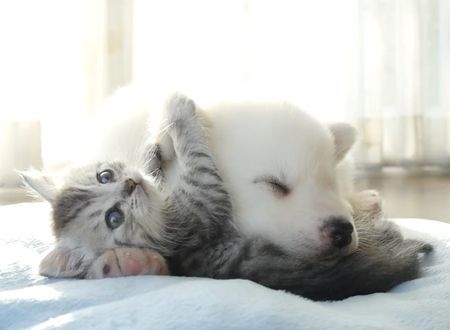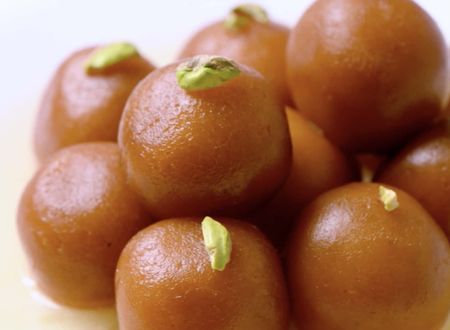The Valmiki Ramayan starts** with the following shloka acknowledging Narada as the knower of past,present and future and person who first recited the immortal tale of Sri Rama’s life .
तपः स्वाध्याय निरताम् तपस्वी वाग्विदाम् वरम् |
नारदम् परिपप्रच्छ वाल्मीकिः मुनि पुंगवम् || १-१-१
[Saint Narada visits hermitage of Valmiki — Valmiki queries about a single perfect individual bestowed with all good qualities enumerated by him — Narada, knower of past, present and future, identifies such a man — describes virtues, qualities of Sri Rama — narrates briefly the story of his life.]
Narada therefore remains a central pivot in the narration of both of our best known and immortal epics Ramayana and Mahabharata . Narada was also the spiritual guru to both Maharishi Valmiki and Maharishi Vyasa — the creators of these epics .
(** Techincally, the shloka starting from Ma Nishad etc is considered the first shloka which inspired Valmiki to write in the Chhanda, but nonetheless this particular shloka then is considered — the prequel. Post hearing the divine tale from Narada, Valmiki ,with a delightful heart soaked in bhakti, went with his disciple Bharadwaj to take a bath and got angry when he saw a hunter hunt down a mating pair of cranes — and hence the Ma Nishada shloka becomes the first of Ramayana)
Narada and Valmiki :
Maharishi Valmiki — the immortal creator of divine Ramayana — was born in the Treta yuga as Ratnakara to Sage Prachetasa. (There are some controversies here — some say he was born to a Bheel king) He got lost in a forest at a young age and a hunter (bheel) took him under his wings. Ratnakara turned out to be an excellent hunter and dacoit . As his family size increased , the spoils of being a feared bandit became the mainstay of his livelihood.
He would attack people going from one village to another and kill them if they resisted . One day he encountered Devrishi Narada passing by , playing his veena and lost in singing the glories of Sri Hari . Ratnakara rushed to him with his stout staff ( there were no guns then !) and threatened Narada- “Look here old man !Hand over everything you have or I will break your head!”
Narada’s concentration was broken . But the param bhakta of Sri Hari wasn’t frightened one bit . Instead he called Ratnakara close and told him — “ I have just this old Veena and the rags I am wearing . Take them if you want. Why kill for them ?”
And then in his mesmerizing voice full of devotion — Narada broke into a song , singing the praises of God . Ratnakara looked at the childlike face full of joy and peace and his cruel mind started transforming right there . He was gazing at Narada , when the Devrishi paused and asked him “Brother , robbing and stealing from people is a sin . Killing them is a bigger sin. Why are you committing such sins ?”
Ratnakara scoffed at this suggestions and said –“ Its easy for you to say but this is the only thing I know. I do this for my parents , my wife and my children . They partake in my all joys and troubles.”
Now Narada smiled mischievously. Adopting his infamous method of sowing seeds of doubt ,he asked ,“Have you confirmed this from them? Will they partake in your sins also ?”
“Ofcourse they will “ , responded Ratnakara with confidence — “after all I do this for them only .”
“In that case ,why not check with them? I am not running away anywhere”, Narada assured.
This set Ratnkara thinking. He tied up Narada to a tree , went home and asked his parents — “The dacoity business I do , is so that I can take care of your needs . Will you partake in my sins also ?”
His father got angry and started shouting — “have we asked you to rob people?” His mother said sadly — “Your karmas are your own , son.” Disappointed — Ratnkara turned to his wife — who looked at him with utter contempt and said — “Tts your duty to take care and provide for your family . Why should we be responsible for any of your sins? The vows are for partaking in your punyas (merit) only ”
Ratnakara was heartbroken. He realized he alone was responsible for his sins and he came back running to Narada , untied him and fell at his feet . Weeping , he narrated the entire story to Narada and prayed to him to guide him so that he may atone for his sins so far .
The ever compassionate Narada , accepted Ratnkara as a disciple and gave him the sacred name of the lord Sri Rama as the mantra (Om Ram Ramaya Namah — as per the Sadhna app).
Some scholars debate that actually the mantra given was “mara” as Ratnkara was a hunter and not fit to receive the Rama Nama in any case . But whatever the case may be ,Narada gave the mantra and instructed Ratnakara to go on chanting until he returned .
Ratnkara closed his eyes and concentrated on chanting the mantra . He progressively lost consciousness of his own existence. He didn’t get up for food and water for days and days . An anthill grew around him and even above him over a period of time . He couldn’t even be seen by anyone . At last One day Narada Muni arrived and carefully cleared the anthill. He saw his student totally immersed in Tapas. Narada chanted the Rama Nama in Ratnkara’s ears and asked him to get up. He was named Valmiki as he rose from the ant hill ( Valmika) and Narada told him — he is blessed and would be known as a Maharishi.
Tears of joy welled up in Valmiki’s eyes as he thanked his Guru for uplifting his life .It is said that Muni Valmiki later gave shelter to Ma Jaanki and taught Luv and Kusha the Ramayana.
Narada has been an unparalleled Guru across the yugas uplifting the lives of many stellar shishyas — we have so far seen Prahlada , Dhruva , Valmiki but there are also Vyasa , Valilkya and others . Narada had infinite compassion and faith in the transformative power of bhakti and hence could confidently take even dacoits and sinners to and turn them into instruments of the Divine . It is therefore at times annoying to see him reduced to being a gossip monger and joker in mythological movies/ series .
(***The above story of the transformation of Dacoit Ratnakara isn’t a part of Ramayana which is a story of Sri Rama’s life . While a part of the folklore since time immemorial this tale first finds a mention in Ramcharitmanasa by Goswami Tulsidas.)
Jai Sri Hari !









Comments & Discussion
4 COMMENTS
Please login to read members' comments and participate in the discussion.